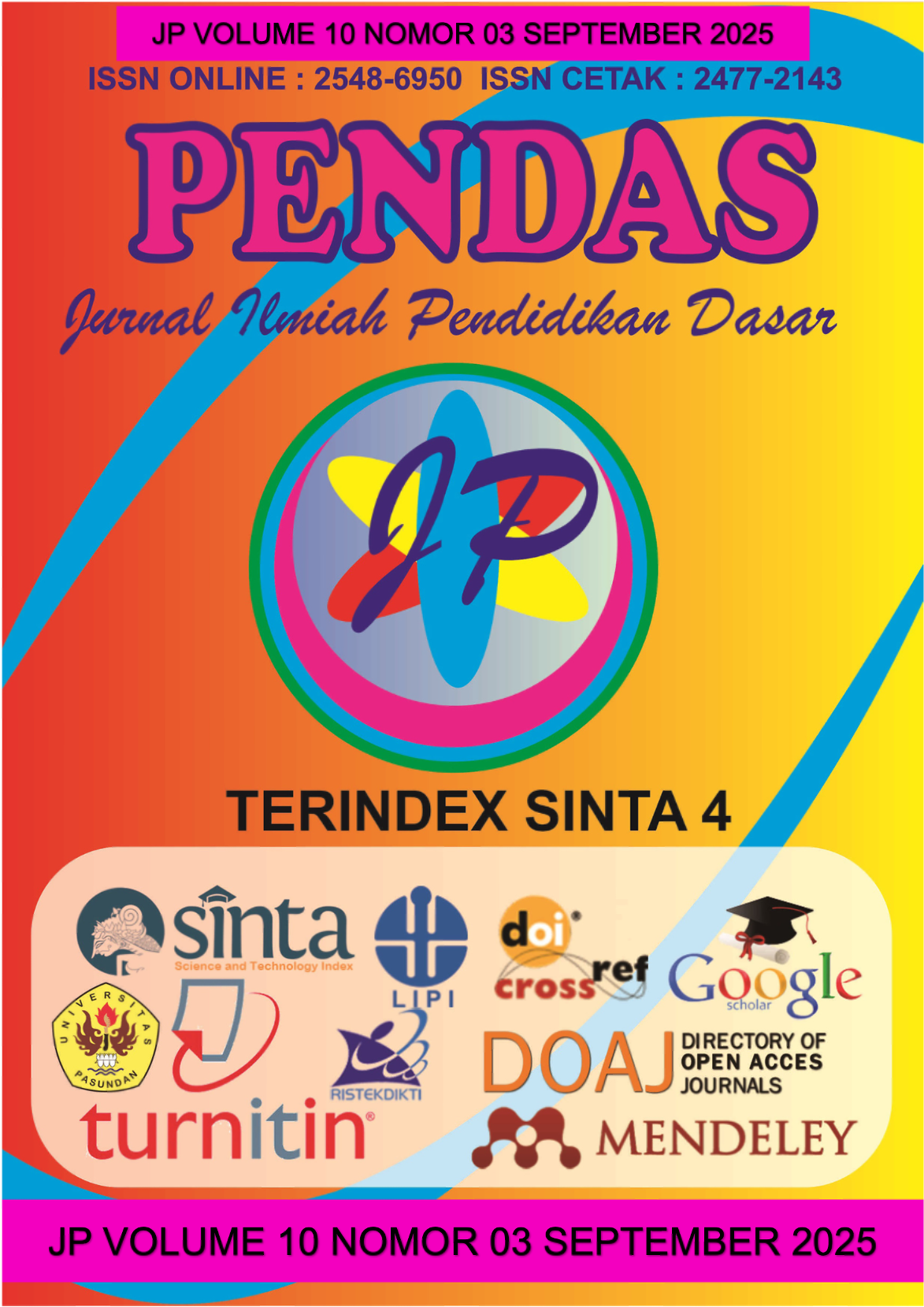EFEKTIVITAS IMPLEMENTASI PROGRAM PELAJAR PANCASILA DI SDN 03 KOTO TANGAH KABUPATEN AGAM
DOI:
https://doi.org/10.23969/jp.v10i03.32033Keywords:
Effectiveness, Pancasila Student Profile ProgramAbstract
This research examines how the Pancasila Student Profile (PSP) is put into practice at SDN 03 Koto Tangah. The PSP, similar to the Character Education (PPK) framework from the 2013 curriculum, aims to nurture students who are lifelong learners. Its core purpose is to develop students with strong moral character, the ability to compete globally, sharp critical thinking skills, and innovative ideas, all in line with its established benchmarks. Specifically, this study looked at the degree to which the PSP was implemented at the school.
Using a descriptive qualitative approach, the study was conducted at SDN 03 Koto Tangah. Primary data was collected from teachers, while secondary data came from students and the principal. Data was gathered through interviews, questionnaires, and documentation. The analysis involved reducing, presenting, and drawing conclusions from the data. The results showed that the PSP aspect averaged 72%, which was classified as "Very Developed." Student surveys on their perceptions of the PSP also averaged 72%, indicating it was "Developed" overall. The highest score, 77%, was for the "Faith, piety to God Almighty, and noble character" aspect, showing considerable success in fostering spiritual and moral values. While the "Independent" and "Creative" aspects were slightly lower at 69%, they were still considered "Developed." Interestingly, no major differences in perception were found between male and female students. Factors supporting the PSP's implementation included teachers having significant autonomy in their teaching. However, a key obstacle was the curriculum's absence of a specific subject for the Project for Strengthening Pancasila Student Profile and Work Culture (P5BK), which meant teachers couldn't fully concentrate on delivering the PSP content.
Downloads
References
Faiz, A., Pratama, A., & Kurniawaty, I. (2022). Pembelajaran Berdiferensiasi dalam Program Guru Penggerak pada Modul 2.1. Jurnal Basicedu, 6(2), 2846-2853.
Istianah, A., & Susanti, R. P. (2021). Pendidikan pancasila sebagai upaya membentuk karakter pelajar pancasila. Jurnal Gatranusantara, 19(2).
Permatasari. (2022). Faktor-Faktor Yang Mempengaruhi Kejadian Benign Prostaltic Hyperplasia Di Unit Rawat Jalan. Jurnal Keperawatan,1 14, 975–9.
Toruan, E. M. (2017). Pengaruh Mutu Pelayanan Kesehatan Terhadap Kepuasan Pasien Rawat Inap Di Rumah Sakit Pelabuhan Medan (Prima Husada Cipta) Tahun 2017 [Skripsi]. Universitas Sumatera Utara. https://repositori.usu.ac.id/handle/123456789/2166
J., Syaefulloh, A. M., Windiani, D., Putriani, P., Rohaeni, S., Gustian, R., Studi, P., Guru, P., Dasar, S., Indonesia, U. P., & Barat, J. (2022). Implementasi habituasi profil pelajar pancasila dan eksistensinya bagi mahasiswa. 6(1), 2141–2149.
Ardiansyah, A., & Kristyaningrum, D. H. (2019). Evaluasi Program Penerimaan Peserta Didik Baru (PPDB) Sistem Zonasi Di Kabupaten Brebes Menggunakan Model CIPP. Jurnal Dialektika Jurusan PGSD, 9(2), 186–195. https://742306682ab7.sn.mynetname.net/index.php/jdpgsd/article/download/425 /332
Downloads
Published
Issue
Section
License
Copyright (c) 2025 Pendas : Jurnal Ilmiah Pendidikan Dasar

This work is licensed under a Creative Commons Attribution 4.0 International License.














































